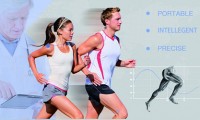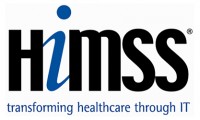-
AI-Enhanced Ultrasound Shortens Scan Time and Improves Efficiency
- Source: drugdu
- 194
- October 16, 2020
-
Shenzhen Chuanggan – Health Assessment Facility Supplier
- Source: Ddu
- 1,383
- September 4, 2018
-
Patient Matching Using Smartphones to Enhance Interoperability
- Source: MobiHealthNews
- 772
- August 24, 2018
-
HIMSS Connected Health Conference to Highlight the Human Aspect of Digital Technology
- Source: The Verdict
- 514
- July 30, 2018
-
Biomedical Blockchain Research Center Opens at Mount Sinai
- Source: Healthcare IT News
- 801
- July 26, 2018
-
FDA Clearance for Algorithm that Quantifies Coronary Artery Calcification
- Source: MobiHealthNews
- 725
- July 13, 2018
your submission has already been received.
OK
Subscribe
Please enter a valid Email address!
Submit
The most relevant industry news & insight will be sent to you every two weeks.













